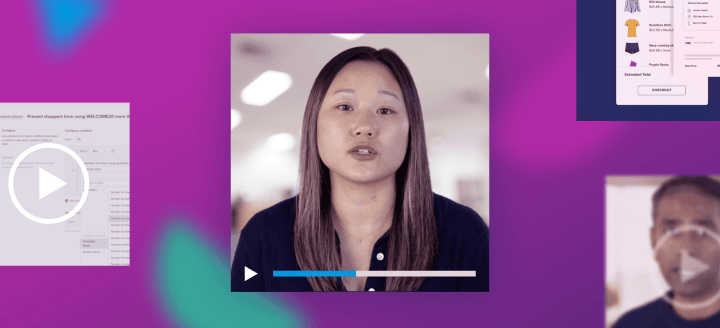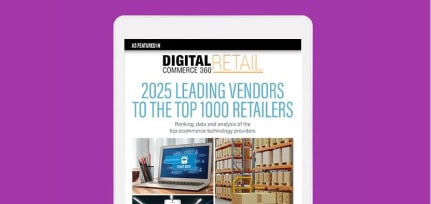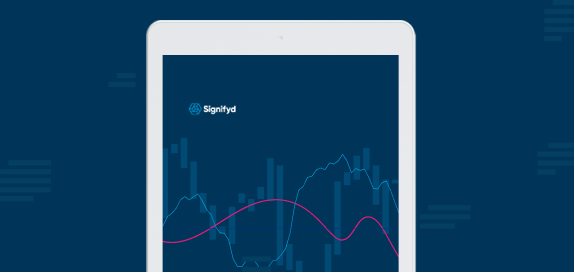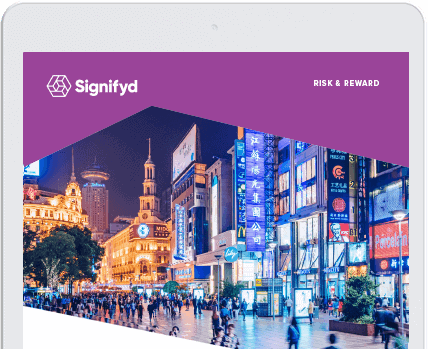Reaching customers in today’s ecommerce world requires creativity and ingenuity. Channels are more abundant and congested than ever before. It takes time, effort and money to break through the noise and get your messages to potential buyers.
Influencer marketing for ecommerce has helped merchants gain visibility and traction in an increasingly competitive market. The organic, word-of-mouth style of advertising has resonated with younger generations of consumers who shop for and research products through social media and other digital platforms. Entrepreneur Magazine reported that almost half of brand custodians believe that influencer marketing helps in generating word of mouth, while another 31% reported that they consider it a good way for subtle brand placement.
Start thinking of how to make ecommerce influencer marketing work for your brand or online store. We’re sharing a look into how influencer marketing works, the existing market for ecommerce influencers and how to apply real-world lessons to launching or refining an excellent influencer marketing strategy.
- Millennials spurred the popularity of influencer marketing due to their aversion to traditional advertising. Now, all generations are on board.
- Social media platforms like Facebook and Instagram are making changes that will challenge brand leaders and social media influencers to create more in-depth consumer engagement.
- Singles’ Day in China can be a model for influencer marketing and social shopping success in Western Markets.
How influencer marketing works
Step into the mind of the influencer to understand how and where to reach your customers. Influencers offer a lifestyle-based approach to selling products on powerful social media channels like Instagram, YouTube and TikTok. A celebrity or social media-native influencer with a large following can quickly spread the word about their favorite product or service.
Although millennials have driven the influencer revolution, consumers of all generations are discovering new ecommerce products thanks to influencers’ grassroots messaging and seamless peer-to-peer recommendations. Further, consumers can find new brands and products through an influencer’s page because influencers are often not tied to a single brand. It’s easy to see why ecommerce sellers are eager to connect with the best influencers on the market.
Think of influencer marketing as a way to enhance your current marketing communications strategy. BigCommerce reports that 89% of all marketers that use influencer marketing have found the return on investment comparable to or better than other marketing channels. It’s a smart way to make an impact in visual-based, social-media-driven and millennial-friendly markets.
The current market for retail influencers
Influencer marketing in ecommerce has become a staple for retailers of all kinds. Over the past decade, there has been a huge influx of influencers from all areas of the entertainment, sports and cultural arenas.
Major brands and online retailers rely on celebrities like Kylie Jenner. However, influencers come from other areas too. Many bloggers, YouTube creators and Instagram stars build strong followings over time and are able to parlay their reliability into an influencer role. Their recommendations of products and services to followers can make as much of an impact as those of celebrities.
The Digital Marketing Institute found that 49% of consumers rely on the recommendations of influencers and another 40% made a purchase after seeing a product on YouTube, Instagram or Twitter.
While influencer marketing remains hot, it’s important to stay current on changes to social media platforms and algorithms. You spend time and money on market intelligence like interest rates and cost of raw materials. Make sure to include current events in social media marketing as part of your business strategy.
Social media changes might impact influencer marketing
Changes to social media feeds and platforms can make a swift impact on a marketing strategy. These changes may also affect social media influencers and brands that rely on them.
Mark Zuckerberg recently announced changes in Facebook’s news feed that will allow visitors to see less public content from brands, businesses and media to allow for meaningful interactions between individual profiles. Influencers and business leaders may face a struggle in reaching the Facebook audience.
Instagram’s influencers are facing their own potential shake-up as the platform plans to remove the ability to “like” a post. Business Insider shares that the platform’s intention is to improve the experience of consumers.
Instagram influencers claim the new algorithm penalizes their content reach. The policy aims to ensure that social influencers provide real information and benefits of products instead of fishing for superficial metrics such as likes. Business Insider reports that brand leaders are looking for influencer marketing partners that can deliver on a spectrum of metrics, such as engagements and click-throughs.
Digital media will remain disruptive, so it’s important for marketing and branding leaders to understand how to work with disruption, not against it. Take an example from Single’s Day in China to see how influencer marketing helped create an entire shopping holiday that rivals Black Friday in profitability.
Singles’ Day: The Super Bowl of influencer marketing
Launched in 1993 at Nanjing University, Singles’ Day began as a way for single people to celebrate their lives in a world where romantic partnerships are the norm. This one-day shopping event takes place on November 11 each year and is beginning to grow beyond the Great Wall to influence ecommerce on a global level.
The market is ripe for Western retailers to capitalize on the potential success of Single’s Day, with 45.2% of U.S. residents aged 18 or older reporting themselves as single according to Rakuten Marketing. The right influencers could help propel this sales day to popularity for consumers and success for online retailers.
Last spring Signifyd wrote about the growing importance of influencer marketing and social shopping in China. As of April 2019, Chinese social media platform WeChat had 902 million daily users, who interacted with social media marketing content every day from influencer juggernauts like Fang Yimin, known as “the Goddess of Shopping.”
Yimin sold 100 $45,500 Mini Coopers on her WeChat blog — in five minutes. China’s social media platforms allow shoppers to complete their purchases in the app. With the rise of more social shopping-capable platforms like Instagram, seamless social shopping experiences are poised to become the standard for your key audiences.
Launching an influencer marketing strategy starts with understanding your market, your audience and the technology you aim to use. There’s a few more details to get right along the way. Fortunately, we have those covered for you as well.
Get the most out of influencer marketing
A key strategy for brands and social influencers is to work together to better understand their target audiences. Together, they gain better insights into what motivates their followers to engage with them online and ultimately purchase products and services.
Hubspot shares a checklist of steps to take for a winning influencer marketing strategy, including:
- Define your goals
- Identify and define your audience
- Find your brand influencers
- Track your success
Whether your goal is cross-border growth or just getting more eyeballs on your content to help boost sales, influencer marketing can make a quick and budget-friendly impact. With the insight and actionable steps in this post, you can start your 2020 on the right foot with a revamped or brand new influencer marketing strategy.
Have you found success with influencer marketing? Share your story with us on Facebook, Twitter or Instagram!









